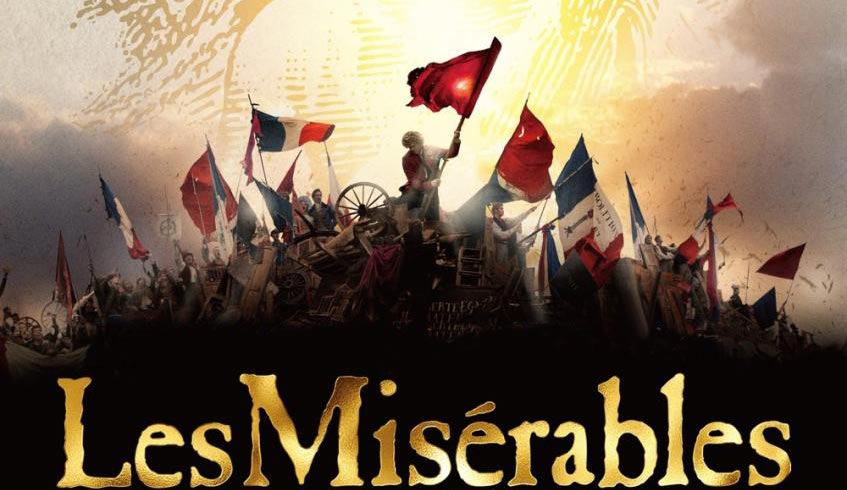Musicals are one of the last genres that completely embraces
the artifice of filmmaking. Performances are allowed to be broad and
melodramatic, sets are designed to fit within a small or contained space and
the songs within are constantly reminding the audience that what they are
watching is not necessarily reality but a metaphorical representation of it.
There
is something inherently cinematic about musicals because they are more purely
devoted to notions of escape and the willing suspension of disbelief. Though
their heyday may be past, the recent success of films like
“Chicago” and “Moulin Rouge!” proved that this style still has its place and that
certain audiences will allow themselves the indulgence of a musical as long as
it can earn its swagger. A movie that does not do this at all (though inexplicably
still seems to be making money) is Tom Hooper’s Oscar-courting adaptation of
“Les Miserables”.
This
film, released on Christmas, is based on a famous Broadway operetta, which in
turn was based on a popular novel by Victor Hugo. The story takes place within
a 20 year span of the French revolution. Hugh Jackman plays Jean Valjean, an
ex-thief who becomes wealthy, but who must hide his criminal past from a
vengeful policeman named Javert, played by Russell Crowe. Anna Hathaway plays
Fantine, a broken prostitute who leaves her daughter Cosette an orphan,
allowing for her employer (Jackman) to assume her parental responsibilities.
Ten years later, this young girl becomes a young woman (Amanda Seyfried), who
then falls for the affections of a battling revolutionary (Eddie
Redmayne), whist at the same time is trying to stay out of the ever-brewing feud
between her adopted father and his arch nemesis.
Tom
Hooper, who has previously directed “The King’s Speech”, sets a stylistic
precedent from the very first scene that hobbles the entire experience. Though
the performances are big and over-mannered and the main musical sequences are supposed
to be sweeping and theatrical, Hooper decides to shoot everything in a
documentary, hand-held way, which in turn only draws more attention to the
musical’s inherent affectations. This then creates an unsettling and oftentimes
frustrating, anachronistic disconnect with the material. The sets are beautiful, the costuming is
thoughtfully detailed and the play’s aesthetic—or whatever little of it we
see—is expensively recreated but the camera-work never seems to be very
interested in the production quality. Instead, what we get is close-up after
close-up, showcasing the nostrils and the gaping maws of its actors.
And
then there is the singing... There are maybe four lines of naturally delivered
dialogue and about four or five actual songs that are at all memorable. The
rest is a warbling mess of sing-talking, done in fluctuating competence from
its cast. Jackman and Hathaway can hold their own, but Crowe is obviously far beyond
his reach and oftentimes his line delivery is embarrassingly flat or
out-of-tune. Reportedly, Hooper wanted to record all of the vocals live on
camera to capture ‘real’ performances, and occasionally he gets some chilling
moments, but more often than not he gets what feels like watching an
amateurish, community theater doing a lousy dress rehearsal, where the songs
are barely whimpered out.
I
know that some people have been deeply moved by this film version of “Les Mis”
but for me this is a movie that makes all the worst choices with the best
intentions. I was never engaged in the story and I never felt an emotional
connection with the material because it was so sloppily presented. While there
is a load of talent suggested amidst this bloated clutter, with almost three
hours of nothing but breathy Broadway renditions and an epileptic camera style
that left me starved for a damn wide-shot, this movie felt boring, obnoxious,
and downright assaultive.
Grade: D+
Originally published in the Idaho State Journal/Jan-2013

No comments:
Post a Comment